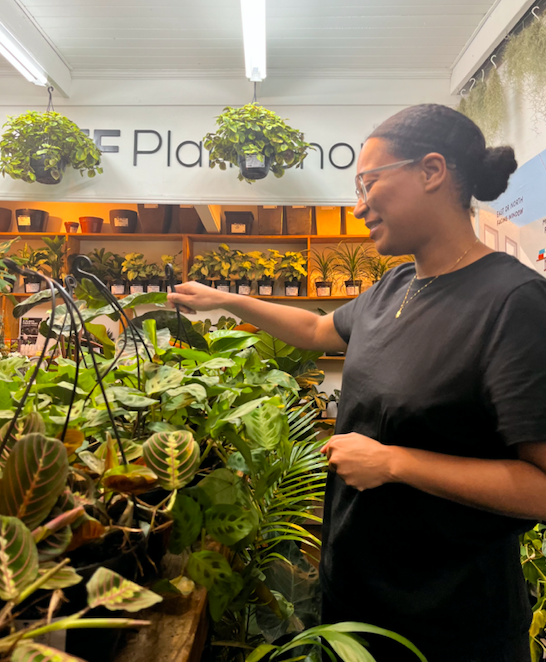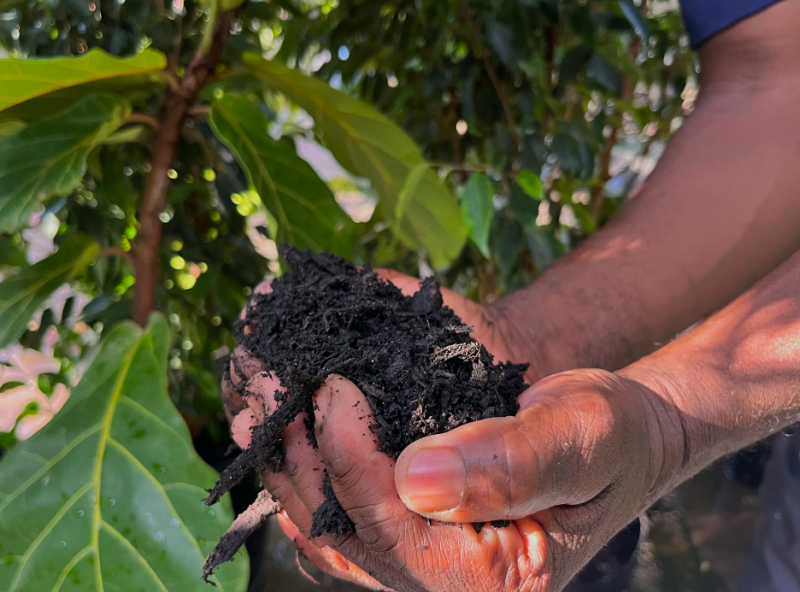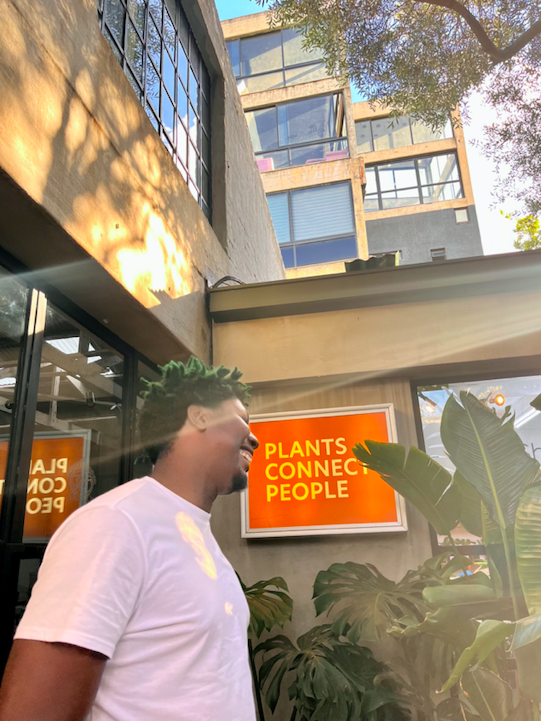Words by Ayanda Dlamini, originally published in Issue 43 of The Coffee Magazine
Our relationship with nature is an important one. For those of us that live in big cities, where concrete dominates and the pace of life is fast, we can lose sight of the intricate beauty of nature and how greenery makes our lives better. At times, nature can provide us with the feelings that resemble the first sip of coffee in the morning. You suddenly feel refreshed and the optimistic thoughts towards your day begin to override the negative. The mental clarity begins to settle in and in that moment, everything is okay. For me that’s how influential the effects of embedding myself in nature is. It serves as that moment of pause, the refocusing of the present moment, and that deep relieving exhalation that awakens new ideas and snoozes negative ones.
It’s my deep appreciation for nature that makes me want to take care of it.
The conversation around preserving the environment can be quite an extensive one. It’s often dense and leaves people feeling overwhelmed, to the point that we choose to detach from the scary consequences of environmental degradation. Instead of focusing on the scary bits, let’s shine light on positive and user-friendly sustainable habits, using, you guessed it, coffee.
It only made sense to tap the boundless knowledge of Business partners and co-owners of JFF Plant Shop, Negin Monkoe and Ashleigh Tumelo Machete (@joburg_ash).
JFF Plant Shop is an illustrious spot known for their rooftop space in Joburg CBD. Bridging the gap between city life and farm life. They’re a pioneering driving force for sustainable living in the city and and urban farming, illustrating the importance of plants in people's lives.
Not only are they plant and sustainable lifestyle enthusiasts, they also share a deep love and appreciation for coffee. This has manifested into their daily sustainable habits too, where they actively seek ways in which they can use coffee sustainably for their plants, ultimately creating less waste.

“I’m an avid coffee drinker,” Negin tells me, “I enjoy a good almond cappuccino. When I make coffee at home though, I make it with a French press. And in the spirit of sustainability the nice thing about having used coffee grounds is being able to use it for my plants. There are many uses for it but I like to use it to get rid of bugs, you can just sprinkle that lightly on top of your plant or place a bit into your potting soil. You don’t want to do too much because it can be a little acidic. Usually though most of its acidity is extracted while you’re brewing the coffee.”
“It’s really great to be able to repurpose coffee. Especially if you are a habitual coffee drinker. You do accumulate this waste and it seems a shame to just throw it away, when it’s so rich in nutrients and there are so many functions for it.”
There were many moments where Negin and I had to bring ourselves back to my list of questions. At some point we paid little attention to structure and started exchanging our personal ways in which we try to live sustainably at home.
We discussed my research on the uses of coffee grounds, or even old unused grounds that may have been forgotten about, and the hidden talents coffee possesses that people may not be aware of.

“Such practices are what brought Ash and myself in touch with the value of growing your own food and having plants in general, especially in a city. When you don’t have greenery all around you and you don’t have access to the freshest air and food all the time.
And it can really be an easy thing to do, if you have the space on an available rooftop or a balcony or even a windowsill - start growing just a little bit and see what happens. Create those green spaces and it can really be a beautiful third space for those that have tiny little windows, fill that space with plants, instead of staring out to a wall. Most of all, it is rewarding and therapeutic to work with plants.”

This experience has taught me that there are plenty of uses for the waste that we produce. The key to maintaining them is to incorporate it into your everyday routines, because it’s important we think of ways we can incorporate sustainable practices alongside the things we enjoy doing, like simply having a cup of coffee in the morning.
TIPS FOR YOUR UPCYCLING USED COFFEE AT HOME
Natural Room Fragrance: Placing small decorative containers around your space, can serve as a delightful smell throughout your home. You can use spent coffee grounds (or even old unused grounds that may have been forgotten about)
Coffee Scrub For your Pots: Add about 3 teaspoons of used coffee grounds to warm water and dishwashing liquid. The oils and texture of the coffee help to lift stubborn residue.
Simple Coffee Body Scrub:
● 1⁄2 cup of used coffee grounds
● 1⁄2 cup brown sugar
● 1⁄2 cup of coconut or olive oil
Coffee Grounds as a natural fertilizer - Courtesy of the JFF Team:
Make sure the coffee grounds are as dry as possible. Wet grounds can be too
acidic and be more susceptible to mould.
Application: sprinkle thin layer into the soil in a pot or work a thin amount into the soil Benefits: acts as a natural fertilizer and aids with repelling pests (smell and caffeine
deter them)
The Extra Mile: start creating a Compost Bin or a Worm Bin where you collect the grounds